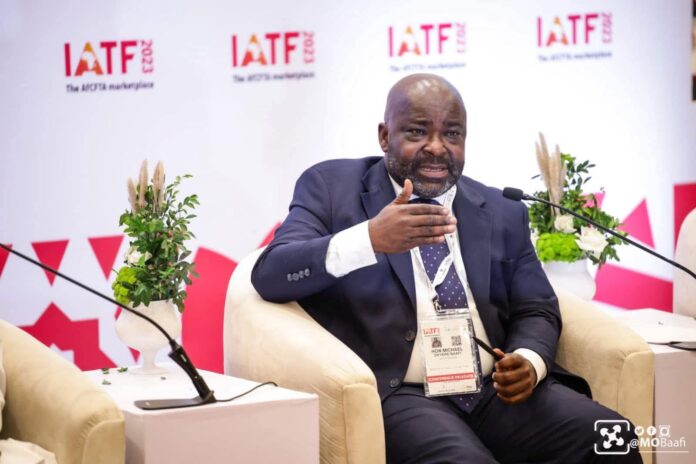Member of Parliament for New Juaben South Constituency, Michael Okyere Baafi, says Ghana does not necessarily need zero-tariff access to the Chinese market as being offered by the Chinese government to Africa.
The Ranking Member of the Trade and Industry Committee proposes that the government should instead take advantage of the African Continental Free Trade Agreement (AfCFTA), which has been signed by 54 out of 55 African countries.
“As we speak now, about 80% of the African market has not been exploite. We must trade among ourselves,” he said.
He believes that increased trade among African countries would build a more resilient continent than continued reliance on Western markets.
President Mahama announced at the 2025 China–Africa Summit that Ghana is set to sign a zero-tariff access agreement with China by the end of October 2025, providing duty-free access for Ghanaian products to the Chinese market.
Mahama’s statement follows an offer made by the Chinese government at the summit in response to the United States’ decision to impose a 10% tariff on African exports to the American market.
As a result, China has opened its market to Africa for trade without restrictions.
Meanwhile, the Ranking Member says the decision is not in Africa’s best interest and could undermine progress made toward advancing intra-African trade.
Speaking to the media in response to President Mahama’s announcement, Mr. Okyere Baafi noted that China’s exports to Ghana increased by 46% between 2020 and 2024, while Ghana’s exports to China grew by only 11% within the same period.
He indicated that China stands to benefit significantly more under such arrangements, describing the deal as imbalanced and non-reciprocal.
The Ranking Member urged the government to leverage the existing free trade framework among the 54 African countries under the African Continental Free Trade Agreement (AfCFTA) to promote Ghanaian products, rather than entering into trade deals that may not serve the long-term interests of local manufacturers and exporters.
ALSO READ:



